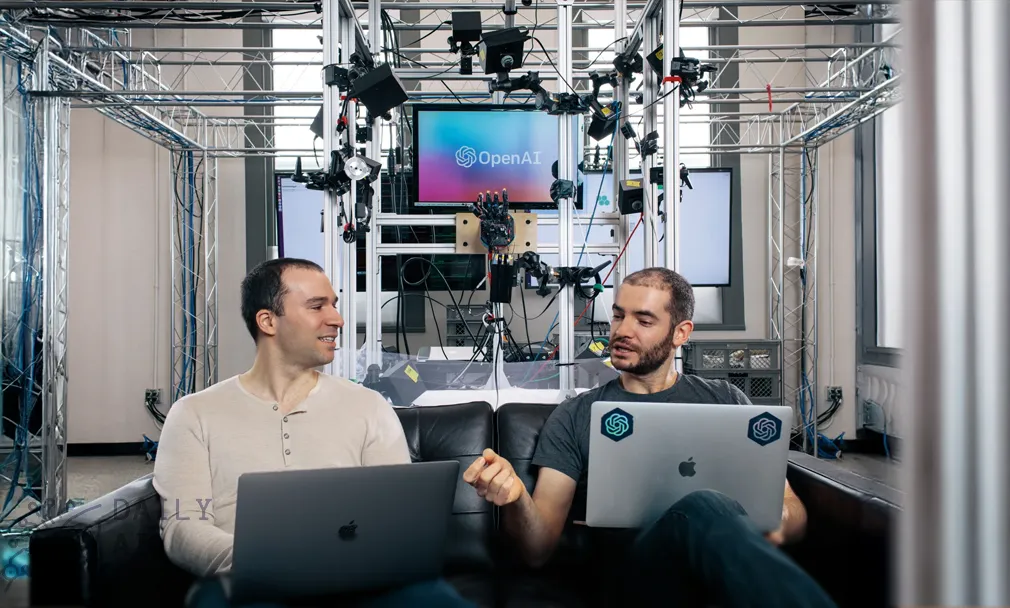
OpenAI Enters E-Commerce: ChatGPT to Monetize Product Sales Through Integrated Checkout System
In a decisive pivot toward monetization at scale, OpenAI is preparing to embed a native checkout experience within ChatGPT—marking a bold evolution in the generative AI space and signaling a new era in how artificial intelligence may shape the future of online commerce. This development positions OpenAI to earn revenue not just from subscriptions to its premium tiers, but also from purchases made directly through ChatGPT's interface.
This initiative is more than a feature release—it's a strategic recalibration for a company long associated with cutting-edge research and loss-leading deployments. Now, OpenAI is preparing to tap into the lucrative world of affiliate commerce, leveraging ChatGPT's expanding role as a personalized discovery and recommendation engine.
From Prompts to Purchases: A New Revenue Stream Emerges
Currently, ChatGPT provides users with product suggestions and links to external merchant sites. However, the company is now developing a fully integrated ecommerce and checkout pipeline, enabling users to complete transactions without leaving the chat interface. Once deployed, this would allow OpenAI to take a commission from merchants fulfilling these orders.
By embedding a Shopify-powered checkout system within ChatGPT, OpenAI would capture a portion of consumer spending facilitated by its platform—including users of the free version, a group it previously had limited monetization pathways for.
The feature is still in development, and its precise specifications may evolve. However, insiders confirm that OpenAI and partners like Shopify have already begun showcasing early prototypes to select brands and discussing commission-based revenue models.
Redefining How Consumers Shop Online
This move doesn’t just expand OpenAI’s revenue streams; it disrupts established ecosystems. As more consumers turn to AI chatbots for information, product discovery, and research, traditional search engines face a new kind of competition. OpenAI's commerce integration challenges Google’s dominance in paid search advertising, presenting brands with a fresh channel for influence.
This capability also unlocks a new field of digital strategy: AI Optimization (or "AIO"). Brands and marketing firms are now working to understand how to craft product descriptions, content, and digital footprints that are more likely to surface in AI-generated responses—a next-gen evolution of SEO.
How It Works: Intelligent Recommendations and User Context
OpenAI has recently enhanced ChatGPT’s memory and context retention features. This means product recommendations can now be shaped by user preferences, specified budgets, or past queries, creating a highly personalized shopping experience.
When users ask for suggestions—whether for tech gadgets, skincare, or apparel—ChatGPT will now provide relevant product options, sometimes paired with multiple retailer links. The order of these listings currently depends on metadata from third-party sources, not price or shipping speed, although OpenAI has stated its intent to evolve this as the feature matures.
Quietly Challenging the Advertising Status Quo
Despite recent statements that it had "no active plans to pursue advertising," OpenAI executives have acknowledged the company is now exploring ecommerce revenue as a core component of its business model.
According to company insiders, future versions of ChatGPT may charge small affiliate fees for purchases made through tools like Deep Research, with early estimates ranging around 2%. This low-friction monetization strategy could unlock billions in transaction-driven revenue over time.
The broader implications are profound: If successful, this model could shift the center of gravity away from display ads and sponsored search listings, toward AI-driven commerce that feels native, intelligent, and personal.
AI as Your Personal Shopper
The AI is no longer a passive tool waiting for commands. It's becoming a proactive agent, trained not just to answer, but to anticipate your needs—curating products, filtering recommendations, and now facilitating seamless transactions. Brands will soon be vying not for top Google results, but for visibility within an LLM’s training data and response logic.
Yet this rise also invites scrutiny. If AI begins to show preferences, whether based on training data, affiliate relationships, or internal algorithms, what transparency exists for the end user? Who determines which products are displayed—and which are buried?
The New AI Marketplace
This ecommerce shift is just the beginning. As generative AI grows more embedded in the daily lives of American consumers, it will not just answer questions or write emails—it will sell, curate, and convert.
With the right optimization and integrations, ChatGPT may become the Amazon of conversational commerce—not a platform you browse, but a companion that browses on your behalf.
AI isn’t coming. It’s already here—reshaping how we work, spend, shop, and think. If you're serious about making money online with AI, staying informed is non-negotiable.
As AI evolves from helper to revenue partner, the real question is: Will you shape the commerce, or will the commerce shape you?
Stay informed on the future of artificial intelligence and its impact on everyday life by making DailyAIPost.com part of your daily routine—because in the age of AI, staying ahead means staying updated.
